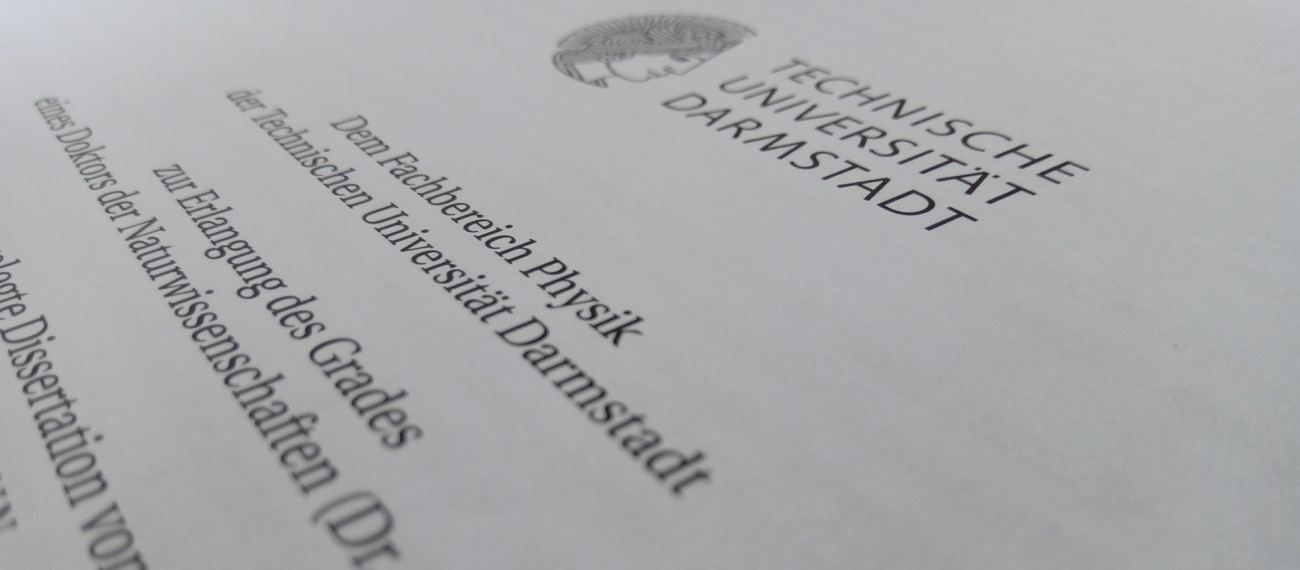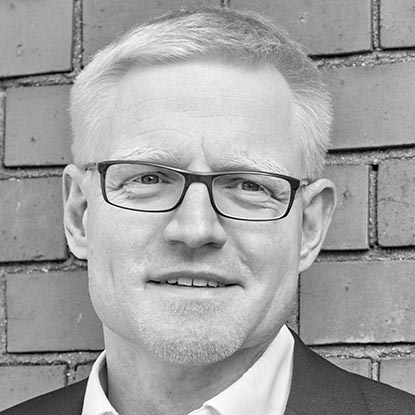Since doctoral studies extend over a period of several years, the choice of topic should be very well considered. A high level of motivation over several years is required, so that the selection of topics should focus less on current fashion than on your own interests. The topics under consideration can be discussed with the appropriate supervisor. It should be noted here that not only the heads of the working groups, but also suitable staff members, e.g. Privatodozenten or habilitated postdocs can take on the supervision.
Various factors play a role in the selection of the working group. Of course, the research group determines the research area, so that the individual interest limits the choice. However, aspects such as the infrastructure of the group, cooperation with other groups or companies, and the scientific reputation should also be taken into account. What is the average duration of doctoral studies in the group? What is the supervision like? Is a supervisor available if needed? What is the working atmosphere like? These factors can determine the success of the doctorate. Information about this can be obtained in particular from the members of the working group. In general, you should be aware that you will be working with the members of the working group for a large part of the next few years – and that should work out.
The duration of the doctorate is of great importance for many candidates. Both for an academic career and for a career in industry, it is desirable to obtain a doctorate as quickly as possible. However, in no case the quality of the scientific work should suffer under the aspect of a fast completion. It is therefore a matter of finding a compromise between the duration of the doctorate and the quality. This aspect should also be the subject of a discussion with the supervisor.
In particular, it should be clarified to what extent teaching duties are to be assumed and what other administrative tasks are to be expected. The supervision of diploma students, which may be a part of the work, should also be largely arranged beforehand. Overall, at least 1/3 of the time should be guaranteed for self-determined research.
In physics, the average duration of a doctorate is actually approx. 4 years.
At the Department of Physics, the dissertation can be written as a monograph or as a cumulative dissertation.
A cumulative dissertation is possible if the doctoral candidate and the supervisor have agreed on this option. This must be explicitly recorded in writing within a supervision agreement.
Various conditions have to be fulfilled for cumulative dissertations. Please carefully read the General Doctoral Regulations (opens in new tab), the Special Regulations (opens in new tab) and our guidelines (opens in new tab).
The Conference of Physics Departments (KFP) has adopted a recommendation on good scientific practice for qualification theses in physics. This text is now generally available on the KFP website.
According to §7(6) of the General Doctoral Regulations, the Doctoral Admissions Committee can attach conditions to accepting graduates which must usually be fulfilled within two years. These conditions are designed to ensure that the candidate is able to conduct academic work and may involve, in particular, proof of successfully participating in taught courses and passing certain examinations.
Conditions may especially be imposed if a degree has been taken in a different subject, at a university abroad or at a university of applied sciences (Fachhochschule). The nature of those conditions as well as their extent, depend on each individual case. For further information and to ask questions, please feel free to contact the Department's Office.
You will be informed about the status of your application in writing approximately one weeks after the relevant Doctoral Admissions Committee has considered it.
Enroling for admission to a doctoral degree is not obligatory. It is possible to acquire the qualification without being enrolled. On this point, please take note of all the necessary information to be found on TU Darmstadt’s main site.
If you enrol, please keep in mind that you are entering into a student relationship and must actively resign from it at the appropriate time by exmatriculating.
Please submit your thesis, including all the additional documents required, to the Department's Office no later than 12 a.m. the day prior to the meeting of the Doctoral Admissions Committee. Only complete applications can be considered.
Your disputation will be scheduled by the doctoral admission board in coordination with the Department's Office.
Once you initialize the doctoral examination process, you are asked to suggest a date for your disputation, which has been agreed by all of your examiners as well as the Department's Office.
The examination committee at the Department of Physics consists of at least five people: The chairperson, the reviewers (first reviewer, co-reviewers) and at least two further examiners in accordance with Doctoral Regulations. At least one of the reviewers must be a full-time professor in the Department of Physics.
The members of the examination committee – not including the chairperson – should not all belong to the same institute and furthermore not all belong to the same genre (theory/experiment). As a rule, an examination committee member should not summarize both functions. An application for an exception can be approved by the Doctoral Regulations Board in justified cases.
The defence of the dissertation takes place as part of a disputation. This is preceded by a public lecture which opens the examination discussion. The public lecture, in which the research topic is to be presented concisely, should be orientated toward a length of 20 minutes.
The subsequent 60-minute disputation is divided into two major parts:
- The first 30 minutes are focused on the dissertation itself. At the start, the second reviewer is given the opportunity to ask questions for up to 15 minutes, followed by a 15-minute session of open questions from all examiners and authorized examiners present on the topic of the thesis.
- The latter 30 minutes are intended to demonstrate understanding of physics in general. Here, those examiners who have not written a report are given the opportunity to question you first. This can take place one after the other in two fixed blocks of time.
The chairperson moderates both rounds of questions with a view to the requirements.
According to TU Darmstadt’s General Doctoral Regulations, you are only permitted to carry the title of doctor once you have received your doctoral certificate.
In case you need a confirmation that you have passed your doctorate, please get in touch to the Department's Office. It is possible to issue a confirmation in short time.
It has to be clarified that the final version of your dissertation, which has to be accepted by your supervisor, is exactly the same PDF you have uploaded to TUprints. Therefore you have to fill in exactly the same name of the uploaded file to the column File name of the electronic version in the form, e.g. Dissertation_[Name]_v2.pdf.
When you have successfully completed your disputation, the certificate will be commissioned. The Department's Office will send you an electronic draft of your certificate and ask you to verify it. Thereafter it will then be printed. Once the certificate has been printed and signed by the President and the Dean – and you have already published you dissertation – you will be notified so that it can be collected.
No, your doctoral certificate will be issued in German only.
If you are not able to collect your doctoral certificate yourself, you can authorise another person to collect it for you. Please provide the Department's Office with written authorisation in advance.


